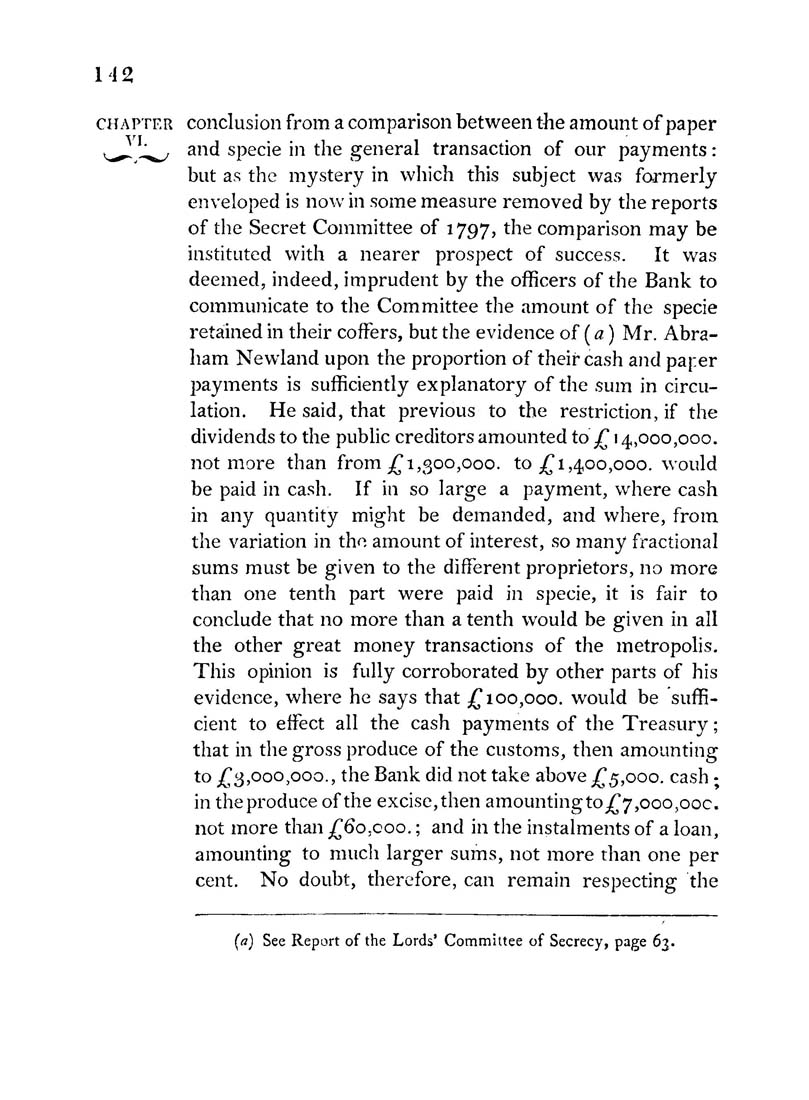1 12
CHAPTER conclusion from a comparison between the amount of paper
^^^ J^^ and specie in the general transaction of our payments:
but as the mystery in which this subject was formerly
enveloped is now in some measure removed by the reports
of the Secret Committee of 1797, the comparison may be
instituted with a nearer prospect of success. It was
deemed, indeed, imprudent by the officers of the Bank to
communicate to the Committee the amount of the specie
retained in their coffers, but the evidence of (^) Mr. Abra¬
ham Newland upon the proportion of their cash and paper
payments is sufficiently explanatory of the sum in circu¬
lation. He said, that previous to the restriction, if the
dividends to the pubhc creditors amounted to^ 14,000,000.
not more than from ^1,300,000. to ^1,400,000. would
be paid in cash. If in so large a payment, where cash
in any quantity might be demanded, and where, from
the variation in the amount of interest, so many fractional
sums must be given to the different proprietors, no more
than one tenth part were paid in specie, it is fair to
conclude that no more than a tenth would be given in all
the other great money transactions of the metropolis.
This opinion is fully corroborated by other parts of his
evidence, where he says that ^100,000. would be suffi¬
cient to effect all the cash payments of the Treasury;
that in the gross produce of the customs, then amounting
to jr3,ooo,ooo., the Bank did not take above ^5,000. cash •
in the produce of the excise,then amountingto-1(^7,000,000.
not more than ^So.coo.; and in the instalments of a loan,
amounting to much larger sums, not more than one per
cent. No doubt, therefore, can remain respecting the
(a) See Report of the Lords* Committee of Secrecy, page 63.
|








